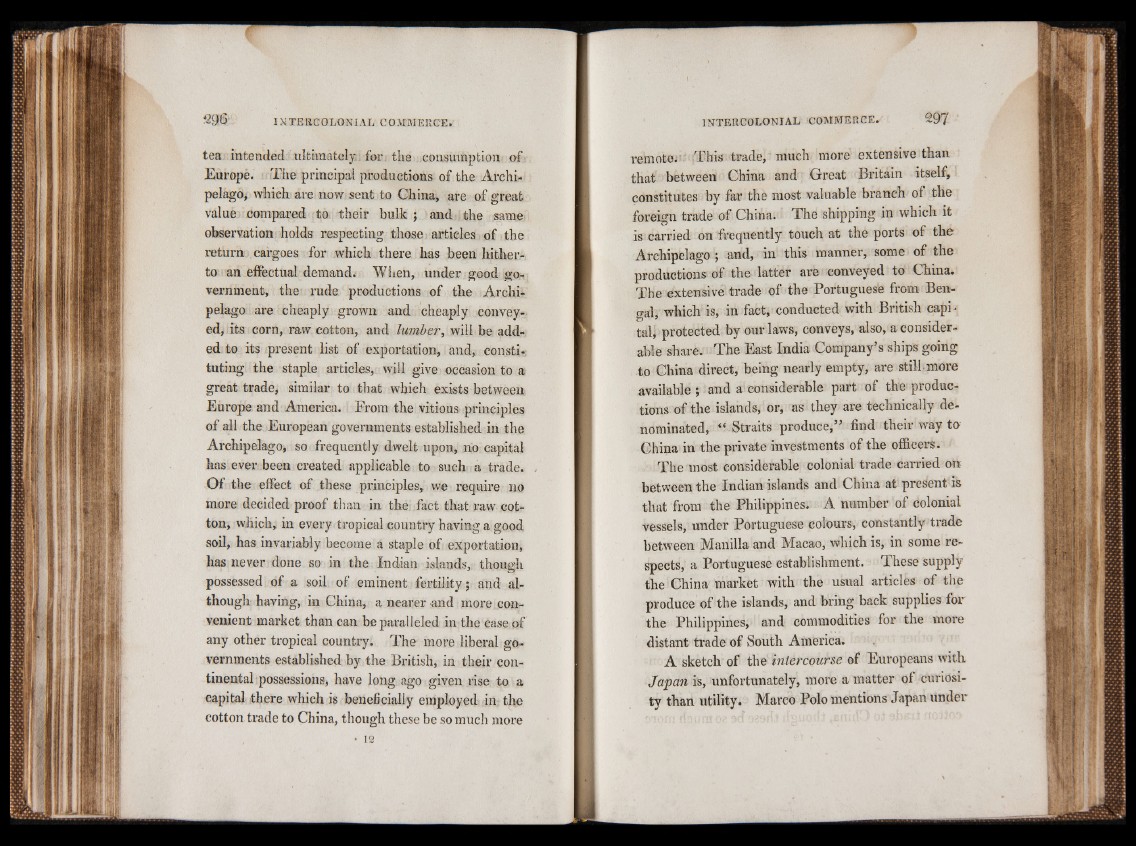
tea intended ultimately ; for. the consumption of
Europe. The principal productions of the Archipelago,
which are now sent to China, are of great
value compared to their bulk; and the same
observation holds respecting those articles of the
return cargoes for which there has been hitherto
an effectual demand* When, under good government,
the rude productions of the Archipelago
are cheaply grown and cheaply conveyed,
its corn, raw cotton, and lumber, will be added
to its present list of exportation, and, constituting
the staple articles, will give occasion to a
great trade, similar to that which exists between
Europe and America. From the vitious principles
of all the European governments established in the
Archipelago, so frequently dwelt upon, no capital
has ever been created applicable to such a trade.
Of the effect of these principles, we require no
more decided proof than in the fact that raw cotton,
which, in every tropical country having a good
soil, has invariably become a staple of exportation,
has never done so in the Indian islands, though
possessed of a soil of eminent fertility; and although
having, in China, a nearer and more convenient
market than can be paralleled in the ease of
any other tropical country. The more liberal governments
established by the British, in their continental
possessions, have long ago given rise to a
capital there which is beneficially employed in the
cotton trade to China, though these be so much more
remote*1" This trade, much more extensive than
that between China and Great Britain itself,
constitutes by far the most valuable branch of the
foreign trade of China. The shipping in which it . is carried on frequently touch at the ports of the
Archipelago ; and, in this manner, some of the
productions of the latter are conveyed to China.
The extensive trade of the Portuguese from Bengal,
which is, in fact, conducted with British capital,
protected by our laws, conveys, also, a considerable
share. The East India Company’s ships going
to China direct, being nearly empty, are still more
available ; and a considerable part of the productions
of the islands, or, as they are technically denominated,
“ Straits produce,” find their way to
China in the private investments of the officers.
The most considerable colonial trade carried on
between the Indian islands and China at present is
that from the Philippines. A number of colonial
vessels, under Portuguese colours, constantly trade
between Manilla and Macao, which is, in some respects,
a Portuguese establishment. These supply
the China market with the usual articles of the
produce of the islands, and bring back supplies for
the Philippines, and commodities for the more
distant trade of South America.
A sketch of the intercourse of Europeans with
Japan is, unfortunately, more a matter of curiosity
than utility. Marco Polo mentions Japan under